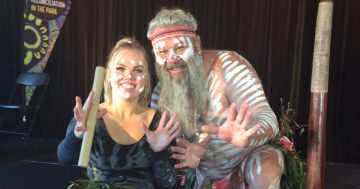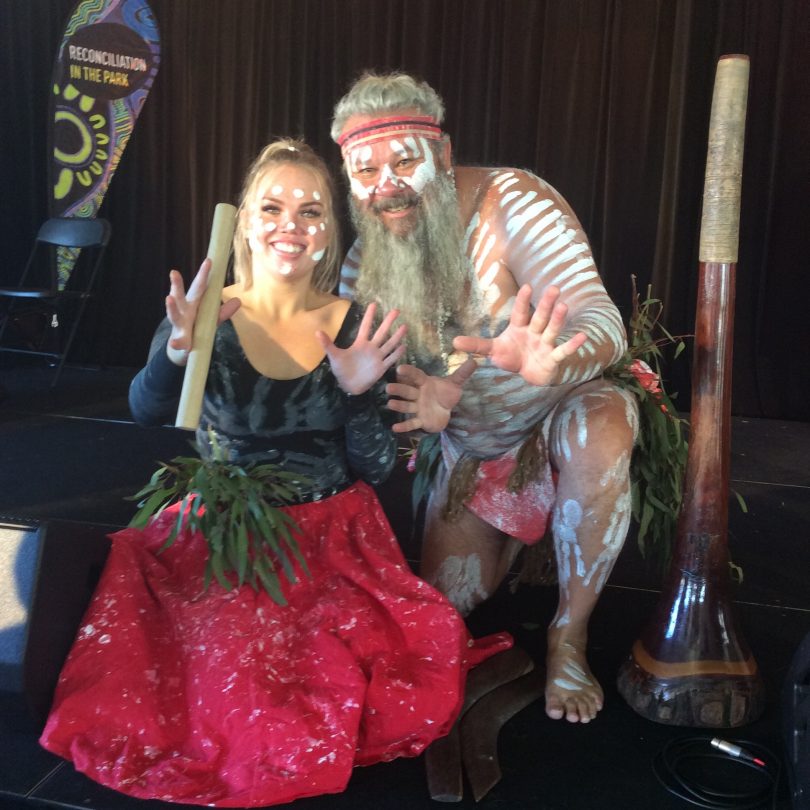
Duncan Smith and his Wiradjuri Echoes were part of the Reconciliation Day event at the Arboretum. Photo: Genevieve Jacobs.
On a day blessed with warm sunshine and gentle breezes, large crowds of Canberrans flocked to the Arboretum for the ACT’s fourth Reconciliation Day public holiday event on Monday.
After last year’s COVID-19 cancellation and a bitterly cold 2019 day in Glebe Park, the new destination was popular for family groups who flocked to activities including weaving, storytelling, yarning circles and music.
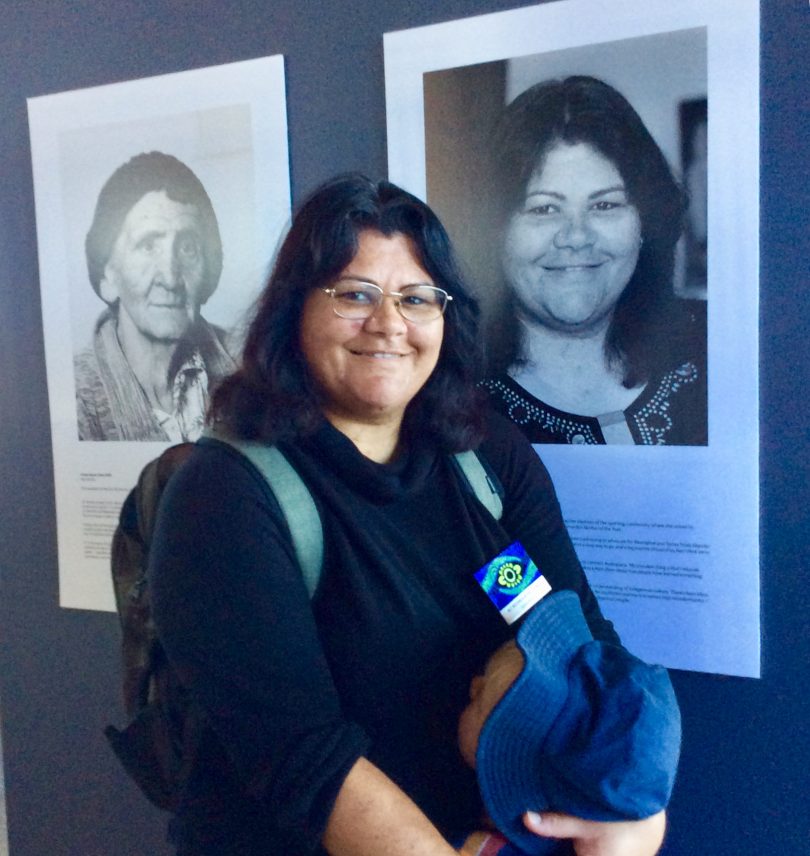
Ngunnawal woman and reconciliation champion Selena Walker with her own portrait and that of her grandmother, Aunty Agnes Shea. Photo: Genevieve Jacobs.
Final numbers have not yet been reported, but it’s believed that between 6000 and 8000 people visited the venue.
The Reconciliation Day public holiday falls on the first Monday on or after May 27, the anniversary of the 1967 referendum that enabled Aboriginal people to be counted in the census.
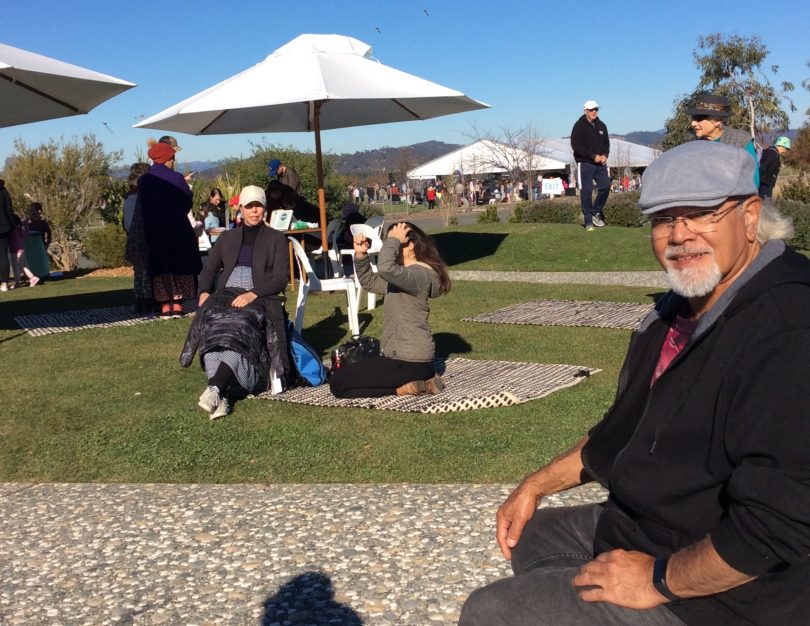
Ngunnawal elder Wally Bell performed a smoking ceremony to begin the Reconciliation day event. Photo: Genevieve Jacobs.
Ngunnawal elder Uncle Wally Bell began the day with a smoking ceremony, followed by a welcome to country by Aunty Violet Sheridan.
ACT Minister for Aboriginal and Torres Strait Islander Affairs Rachel Stephen-Smith opened the day’s events, which also included portraits of 20 ACT reconciliation champions and music from Duncan Smith’s Wiradjuri Echoes, Johnny Huckle and the Griffyn Ensemble.
Hazel Pearce and her supporters were hard at work throughout the day making and talking about her Making Peas/ce project. She has spent much of the past decade making Sturt Desert Peas from felt, creating brooches and headbands in black and red as symbols of healing and recognition of Australia’s border conflicts.
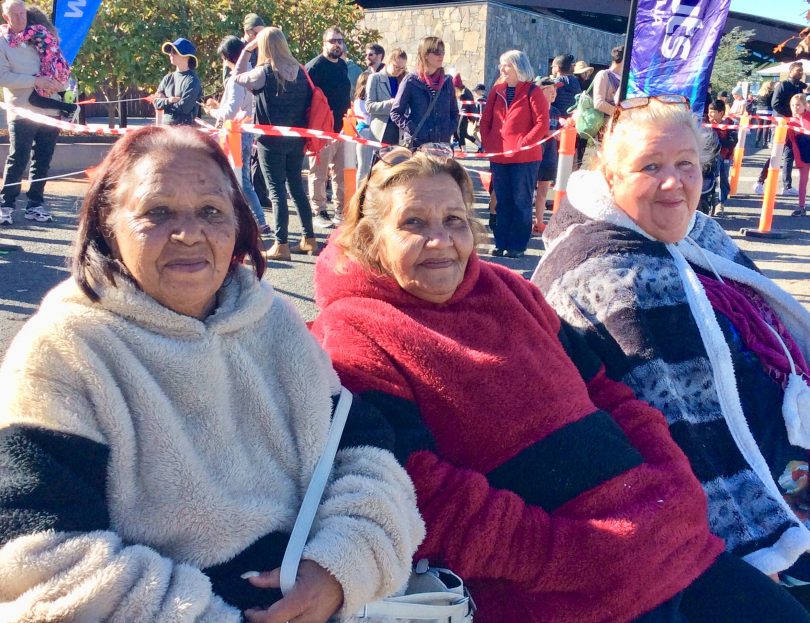
Aunty Coral King, her sister Aunty Nancy and Aunty Kim Peters from the Canberra Nanny’s group took part in the yarning circles. Photo: Genevieve Jacobs
A commemorative florist by trade, Hazel was used to dealing with poppies for Remembrance Day when she came upon the history of desert peas, which are pre-European symbols of remembrance for many desert Aboriginal people.
After meeting and walking with custodians of these stories, she worked with Arrente elder Aunty Beverly O’Callaghan who took the Dreaming stories about the desert peas and wove them into a storybook about the arrival of European settlers and conflicts.
But, Hazel says, the Making Peas/ce project is not about guilt.
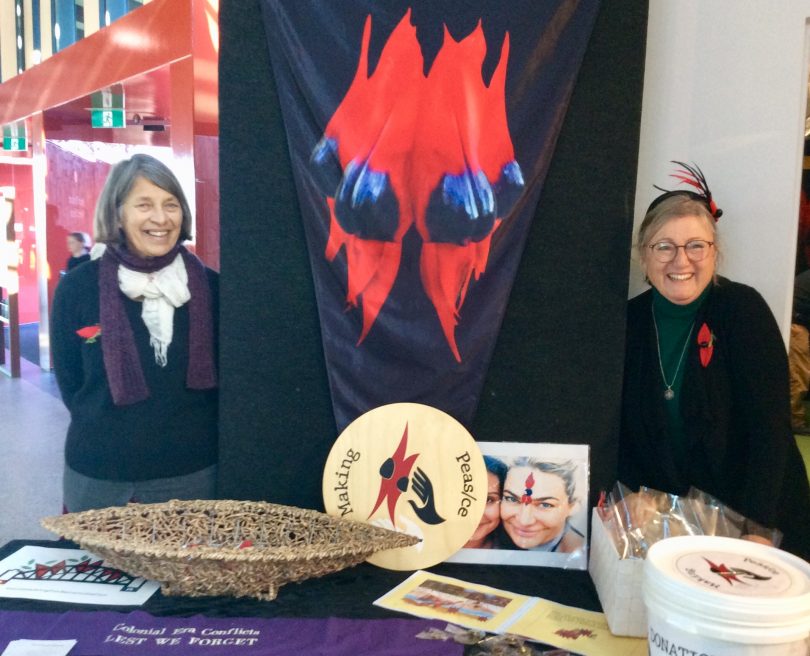
Valerie and Hazel Pearce, founder of the Making Peas/ce project. Photo: Genevieve Jacobs.
“Our focus is restorative justice. We don’t want to create perpetrator or victim mentalities, but it’s important that students in school should be taught balanced history,” she says.
“Many white Australians suffer from feelings of guilt, and to echo the Henry Reynolds book of the same name, ask ‘Why weren’t we told?’ Flowers and floristry give people a safe place to release that unknowing, those complex feelings.
“We need love and understanding, not screaming accusations.”
The felt peas are made in yarning circles where, Hazel says, thoughtful conversations about truth-telling and reconciliation are given space to develop. The organisation has grown rapidly and is currently working hard for a grant that would help them to expand further.
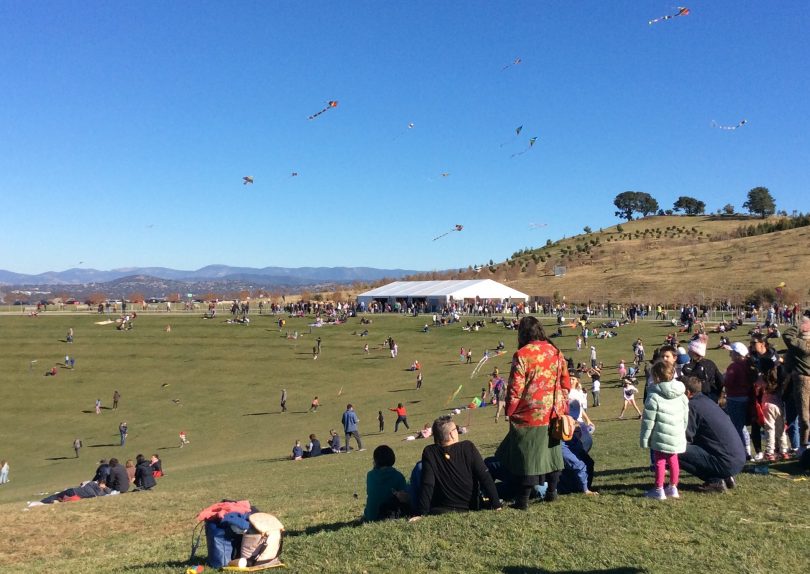
Thousand gathered at the Arboretum for the Reconciliation Day event. Photo: Genevieve Jacobs.
Schools programs have been trialled and very well received in Canberra, Cairns and Alice Springs.
“Teachers say to us that we ourselves are just awaking to our past. We need the tools to hand this knowledge on to our children,” she says.













